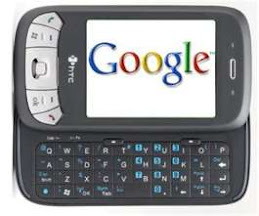Sunday, 26 June 2011
The tap phones
As reports surfaced of the tapping of the phones of the Silchar-based sister and a friend in Kolkata of the former Chairman of the Central Board of Excise and Customs (CBEC), S.D. Majumder, it turned out that the numbers were included in the list by some “disgruntled elements” in the Directorate of Revenue Intelligence. The interception reportedly took place last year when Mr. Majumder was in the race for CBEC chief.
“In this case, permission was sought to tap certain phones which supposedly belonged to suspect smugglers,” senior officials of the Union Home Ministry say, admitting that there was no mechanism in place to cross-check and verify the numbers. Interestingly, the Home Ministry has not received any request for phone-tapping from the CBDT since February this year, according to well-placed sources. Phone-tapping requests from economic intelligence agencies are routed through the Revenue Secretary and the CBDT chief to the Union Home Secretary.
All requests by the Central government agencies, including those under the Finance Ministry and the Central Bureau of Investigation, need the approval of the Union Home Secretary. But senior officials admit that the goof-ups have put a question mark over the integrity of the system which is not foolproof. They do not rule out the possibility of the numbers of innocent citizens being put on the list of those of suspects. Initially, the approval to tap phones is given for 60 days; if the request is repeated for tapping for another 60 days, the agency concerned will have to give detailed reasons. Yet another extension of 60 days is permissible, but no permission is given beyond 180 days, the sources said.
Last month, an inter-ministerial group, headed by the Home Secretary, unveiled strict standard operating procedures (SOPs) to regulate phone-tapping by government agencies. Clearly, the decision came after industrialist Ratan Tata moved the Supreme Court following the leak of the tapped conversations of corporate lobbyist Niira Radia.
The SOPs include creation of a special cell in the law enforcement agencies to deal with all aspects of phone and email interception; appointment of a nodal officer and a specialized system administrator to deal with all hardware, software and records of intercepts; the regular vetting of the staff of the special phone by intelligence agency; Under the SOPs, only relevant portions of original inputs will be shared with other agencies for investigation, but without revealing their sources and mode of collection; hard copies will have to be destroyed by shredding and burning and soft copies will have to be deleted permanently from the system's hardware; and storing devices, pen drives, DVDs, CDs and floppies will be ground to fine powder.
The Supreme Court, in the PUCL vs. Union of India in 1997, had ruled that telephone conversation in private, without interference, would come under the purview of right to privacy as mandated in the Constitution; and unlawful means of phone-tapping amounted to invasion of privacy and were uncivilized and undemocratic in nature.
Subscribe to:
Post Comments (Atom)











Thanks for sharing such kind of nice collection......again, beautiful :) I love reading your posts. They make me cheer up .
ReplyDeleteClick here for more info